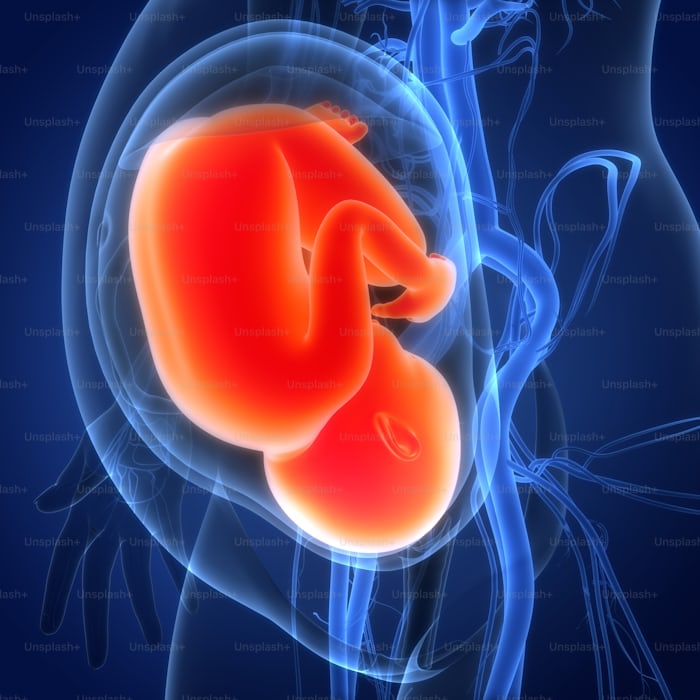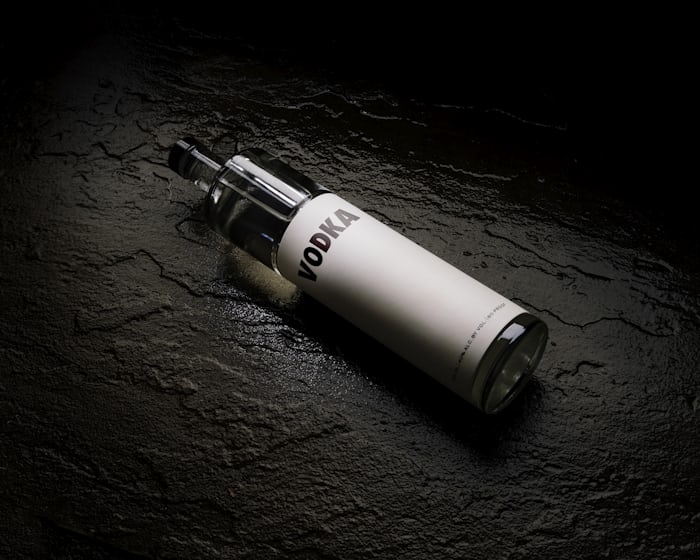Table of Contents
Discovering you’re pregnant can be a joyous moment, but it may also bring anxiety if you’ve unknowingly consumed alcohol during the early stages of pregnancy. In this article: Accidentally Drank Alcohol While Pregnant First Trimester, we explore the concerns and potential impacts of alcohol on pregnancy, during the first trimester. While this situation can be alarming, understanding the facts and knowing how to proceed is crucial for expectant mothers. Let’s delve into what you need to know and the steps you can take to ensure a healthy pregnancy moving forward.

What happens if you drink alcohol and don’t know you’re pregnant
When exploring this question, it’s important to consider several aspects:
1. Prevalence
This situation is relatively common, especially in the early weeks of pregnancy when many women are unaware of their condition. It often occurs before a missed period or positive pregnancy test.
2. Timing and development
The impact of alcohol consumption can vary depending on the stage of fetal development:
– Weeks 1-2: The fertilized egg hasn’t yet implanted in the uterus. Alcohol consumption during this time is unlikely to affect the embryo.
– Weeks 3-4: As the embryo begins to implant and develop, it becomes more susceptible to environmental influences, including alcohol.
– Weeks 5-10: This is a critical period of organ development, making the fetus particularly vulnerable to alcohol’s effects.
3. Potential risks
Alcohol can potentially cause various issues, including:
– Increased risk of miscarriage
– Fetal Alcohol Spectrum Disorders (FASD)
– Growth deficiencies
– Cognitive and behavioral problems
– Facial abnormalities
However, it’s crucial to note that occasional or light drinking before knowing about the pregnancy doesn’t necessarily lead to these outcomes.
4. Factors influencing risk
The potential for harm depends on several factors:
– Amount of alcohol consumed
– Frequency of consumption
– Mother’s metabolism and genetics
– Nutritional status
– Other lifestyle factors (smoking, stress, etc.)
5. Scientific understanding
While there’s a consensus that heavy drinking during pregnancy is harmful, the effects of light or occasional drinking are less clear-cut. Some studies suggest that low levels of alcohol consumption may not significantly increase risks, but most health organizations recommend complete abstinence due to the lack of a known safe threshold.
6. Psychological impact
Learning about unintentional alcohol consumption during pregnancy can cause significant stress and anxiety for expectant mothers. This stress itself can potentially impact the pregnancy, so managing these emotions is important.
7. Next steps
If a woman realizes she’s been drinking before knowing she was pregnant, it’s advisable to:
– Stop drinking immediately upon learning of the pregnancy
– Consult with a healthcare provider for guidance and potential monitoring
– Focus on other aspects of prenatal health (nutrition, exercise, prenatal vitamins)
– Avoid excessive worry, as stress can also impact pregnancy
8. Long-term perspective
Many women who have consumed alcohol before knowing they were pregnant go on to have healthy babies. The key is to focus on positive prenatal care moving forward.
What are the effects of alcohol on unborn babies?
The effects of alcohol on unborn babies is a critical topic in prenatal health. Let’s do an elaborate exploration of this issue:
1. Fetal Alcohol Spectrum Disorders (FASD)
FASD is an umbrella term for various conditions that can occur in individuals whose mothers drank alcohol during pregnancy. These disorders can range from mild to severe and include:
a) Fetal Alcohol Syndrome (FAS): The most severe form, characterized by distinct facial features, growth deficiencies, and central nervous system problems.
b) Partial Fetal Alcohol Syndrome (pFAS): Similar to FAS but with fewer characteristic features. c) Alcohol-Related Neurodevelopmental Disorder (ARND): Primarily affects behavior and cognition. d) Alcohol-Related Birth Defects (ARBD): Primarily affects physical structures of the body.
2. Physical Effects
– Growth deficiencies: Both in utero and after birth
– Facial abnormalities: Including a smooth ridge between upper lip and nose, thin upper lip, and short nose
– Organ defects: Particularly heart, kidneys, and bones
– Vision and hearing problems
– Smaller head circumference and brain size
3. Cognitive and Behavioral Effects
– Learning disabilities
– Poor memory
– Attention deficits
– Hyperactivity
– Poor impulse control
– Problems with abstract thinking
– Poor judgment
– Difficulty in social situations
4. Long-term Consequences
– Academic struggles
– Substance abuse issues
– Mental health problems
– Trouble with the law
– Difficulty maintaining employment
– Problems with independent living
5. Timing of Exposure
The effects of alcohol can vary depending on when exposure occurs during pregnancy:
– First trimester: Higher risk of physical birth defects
– Second trimester: Increased risk of miscarriage
– Third trimester: Impact on growth and brain development
6. Dose-Dependent Effects
While there’s no known safe amount of alcohol during pregnancy, the risk and severity of effects generally increase with higher levels of alcohol consumption.
7. Mechanisms of Harm
Alcohol can affect the fetus in several ways:
– Crossing the placenta and directly damaging developing cells
– Causing oxidative stress in the fetus
– Altering gene expression
– Disrupting the supply of nutrients and oxygen to the developing fetus
8. Variability in Effects
Not all fetuses exposed to alcohol will develop FASD. Factors influencing outcomes include:
– Genetic susceptibility
– Maternal nutrition
– Maternal age
– Timing and amount of alcohol exposure
9. Challenges in Research
Studying the effects of alcohol on pregnancy is complicated by ethical constraints and reliance on self-reporting. This can lead to some uncertainties in our understanding, particularly regarding low levels of alcohol consumption.
10. Prevention
The only guaranteed way to prevent alcohol-related birth defects is to abstain from alcohol completely during pregnancy. Public health efforts focus on education and support for pregnant women and women of childbearing age.
11. Diagnosis and Intervention
Early diagnosis of FASD can lead to interventions that significantly improve outcomes. These may include educational support, behavioral therapy, and medical treatments for specific symptoms.
12. Societal Impact
FASD has significant societal costs, including increased healthcare needs, special education requirements, and potential involvement with the criminal justice system.
Alcohol can have profound and lasting effects on unborn babies, impacting physical development, cognitive abilities, and long-term life outcomes. The complexity and variability of these effects underscore the importance of abstaining from alcohol during pregnancy and seeking early intervention if exposure does occur.

At what stage of pregnancy does alcohol affect the baby?
.Let’s explore this in detail:
1. Early Pregnancy (First Trimester)
Weeks 1-2
– Technically, the embryo hasn’t implanted yet.
– While direct effects on the embryo are unlikely, alcohol can potentially affect the uterine environment.
Weeks 3-4
– The embryo implants and begins rapid cell division.
– Alcohol exposure at this stage could interfere with implantation or early development.
Weeks 5-10
– This is a critical period for organ development (organogenesis).
– Alcohol exposure during this time can lead to significant structural abnormalities.
– Risk of facial abnormalities associated with Fetal Alcohol Syndrome is highest during this period.
2. Middle Pregnancy (Second Trimester)
Weeks 13-26
– The fetus undergoes rapid growth and continued organ development.
– Brain development is particularly active.
– Alcohol exposure can interfere with neuronal migration and organization.
– Risk of miscarriage remains elevated with heavy alcohol use.
3. Late Pregnancy (Third Trimester)
Weeks 27-40
– The fetus gains weight and organs mature.
– Brain growth is significant during this period.
– Alcohol exposure can affect brain development, potentially leading to cognitive and behavioral issues.
– Growth restriction is a common effect of late-pregnancy alcohol exposure.
4. Continuous Effects Throughout Pregnancy
– Brain Development: The fetal brain develops throughout pregnancy, making it vulnerable to alcohol at all stages.
– Growth: Alcohol can impair fetal growth at any point during pregnancy.
Misconceptions: Some believe that drinking before knowing about pregnancy is harmless, but early pregnancy is a critical developmental period.
Also in late pregnancy, while the risk of structural abnormalities decreases, brain development remains vulnerable.
5. Cumulative Effects
– Alcohol’s impact can be cumulative, meaning that exposure throughout pregnancy may have additive effects.
What are the four major symptoms of fetal alcohol syndrome?
Fetal Alcohol Syndrome (FAS) casts a long shadow over affected children’s lives, manifesting in four key areas that parents and healthcare providers must recognize:
1. Distinctive Facial Features: The telltale signs often appear in a child’s face – a smooth ridge between the upper lip and nose (flat philtrum), a thin upper lip, and a shorter-than-average nose. These subtle yet significant markers can be a physician’s first clue.
2. Growth Deficits: Children with FAS often struggle to grow at a normal rate, both in the womb and after birth. They may be shorter and lighter than their peers, a disparity that can persist into adulthood.
3. Central Nervous System Problems: Perhaps the most impactful, these issues can range from structural brain abnormalities to functional deficits. Seizures, poor coordination, or intellectual disabilities may become apparent as the child develops.
4. Behavioral and Learning Difficulties: As they grow, children with FAS often face an uphill battle with attention, memory, and social skills. These challenges can manifest as poor school performance, difficulty with impulse control, or struggles in forming relationships.
Recognizing these symptoms early is crucial.
While FAS can’t be cured, early intervention can significantly improve outcomes, helping affected children navigate their unique challenges and reach their full potential.
Remember: FAS is 100% preventable. By abstaining from alcohol during pregnancy, we can ensure every child starts life on the strongest possible footing.

What to do if you accidentally drink alcohol while pregnant?
Accidentally drank alcohol while pregnant? Don’t panic.
Here’s your action plan if you’ve accidentally drank alcohol while pregnant:
Stop drinking immediately
The moment you realize you’ve accidentally drank alcohol while pregnant, put down that glass. Remember, no amount of alcohol is proven safe during pregnancy.
Contact your healthcare provider
Be honest about how much you accidentally drank alcohol while pregnant. They can assess your situation and provide personalized advice.
Stay hydrated
Drink plenty of water to help flush your system after you’ve accidentally drank alcohol while pregnant.
Boost your nutrition
Focus on eating a balanced, nutrient-rich diet to support your baby’s development, especially if you’ve accidentally drank alcohol while pregnant.
Attend all prenatal appointments
Regular check-ups are crucial, particularly if you’ve accidentally drank alcohol while pregnant.
Consider additional screenings
Your doctor might recommend extra tests if you’ve accidentally drank alcohol while pregnant, especially if it was a significant amount.
Join a support group
Connecting with other moms who’ve accidentally drank alcohol while pregnant can provide emotional support and practical advice.
Focus on future prevention
Identify triggers and strategies to avoid situations where you might accidentally drink alcohol while pregnant again.
Manage stress
Anxiety after accidentally drinking alcohol while pregnant is normal, but excessive stress isn’t good for you or your baby. Try relaxation techniques or counseling if needed.
Educate yourself
Learn about fetal development and the potential impacts of alcohol to better understand your situation after accidentally drinking alcohol while pregnant.
Remember, many women who’ve accidentally drank alcohol while pregnant go on to have healthy babies. The key is to take positive action moving forward. Your honesty and proactive approach are the best gifts you can give your developing baby.

